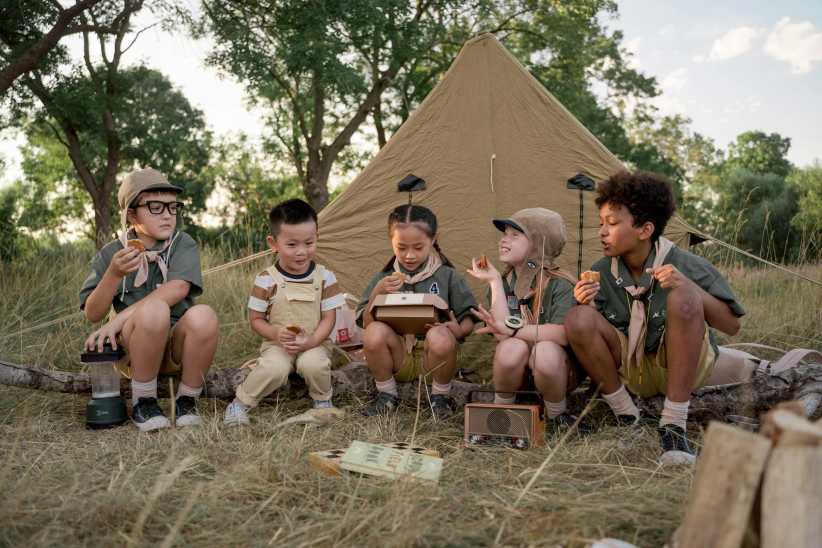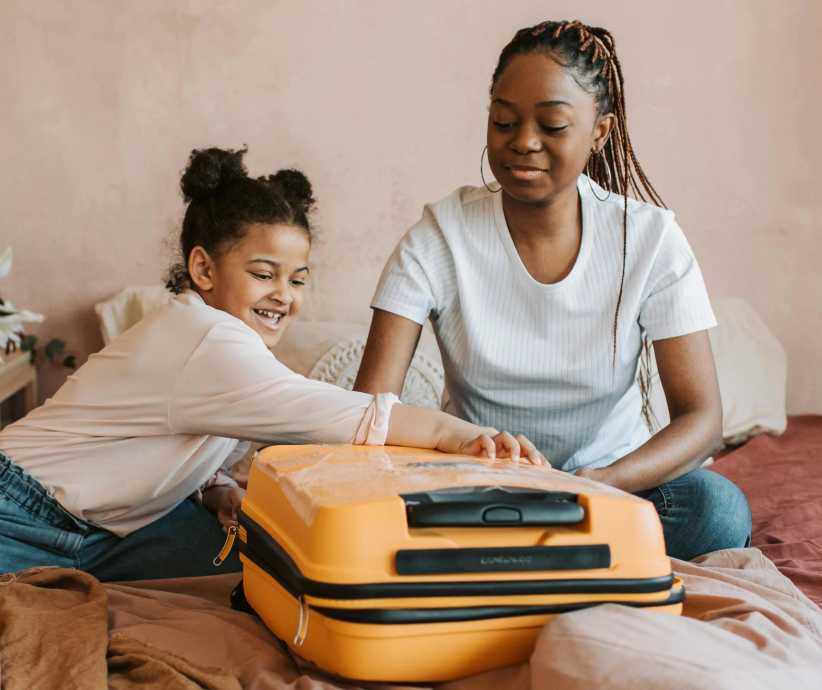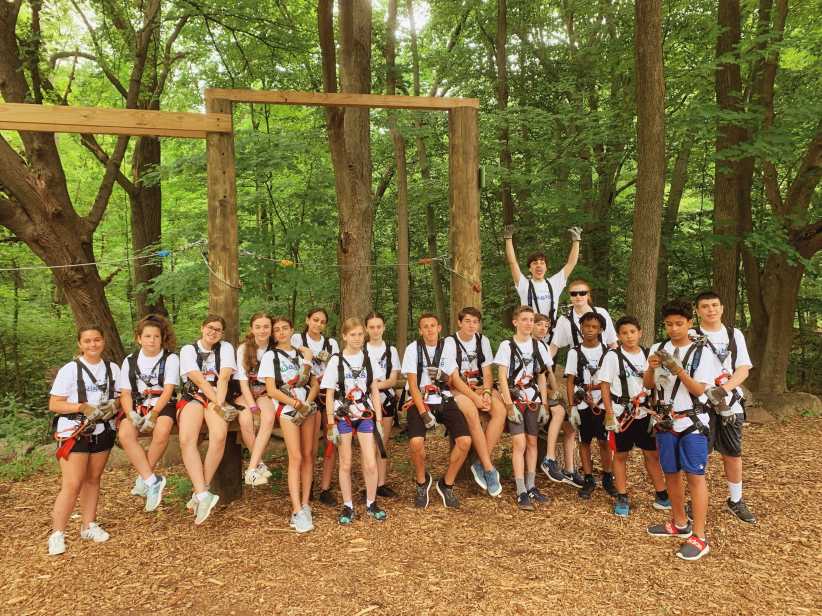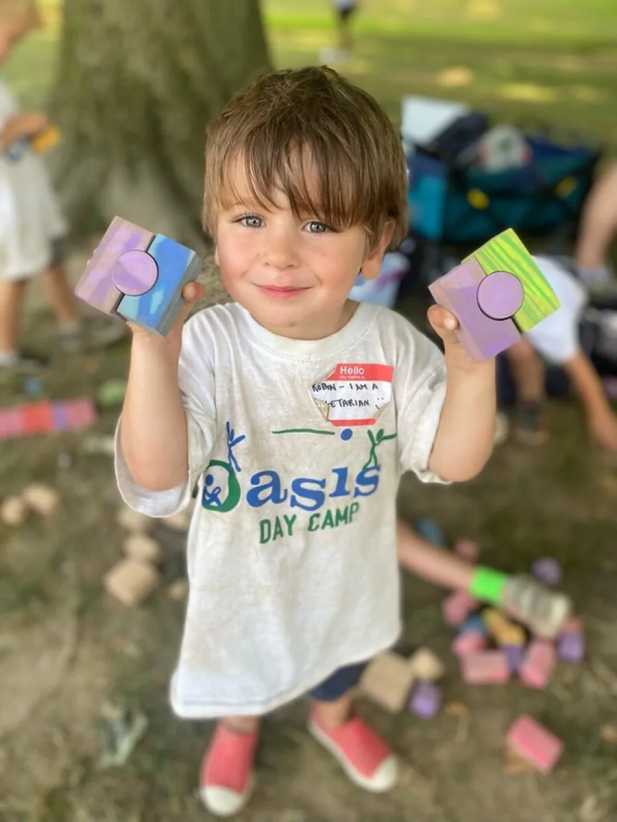
PLEASE NOTE: The city’s biggest Camp Fairs are coming up on Saturday, March 28, and Sunday, March 29, in Manhattan. For families with children ages 3 to teen, the Camp Fairs are free, child-friendly, and feature both Day Camps (in and around the city) and Sleepaway Camps (all over the Northeast). CLICK HERE for details and to register.
You’ve made the exciting decision to send your child to camp, giving him or her the opportunity to try new activities in an environment designed to build life skills such as confidence, independence, and resilience. Since there are so many camps to choose from, parents want to make sure they do comprehensive research to find the right camp for their child. Families looking for a summer camp should carefully consider the following elements.
Camp Director: Inquire about the camp director’s background, and if he or she is a year-round camp professional or a seasonal employee. Year-round camp professionals spend the year planning for camp and focus their program on youth development. “Make sure you feel a connection with the camp director,” says Adam Weinstein, director of Berkshire Hills Eisenberg Camp, a Jewish sleepaway camp in the Berkshires. “While your child is away at camp, you want to make sure he or she is in the care of a director with whom you trust and can communicate well with. Keep in mind that the director sets the tone at camp, so your values should be in sync.”
Philosophy: When choosing a camp, make sure you ask about the camp’s philosophy. Each camp has its own philosophy, so you want to make sure the camp you are choosing reinforces your own family’s values. “Think about your child’s personality, as well as whether or not a camp’s philosophy matches your own,” says Renee Flax, director of camper placement for the American Camp Association, New York and New Jersey (ACA, NY and NJ). “These are both valuable aspects in selecting the right camp.”
Program: Parents should ask about the camp program and what activities the camp offers. Think about what your “must-have” activities are for your child and make sure the camp offers them. Find out about elective periods, and how many your child will have each day. “An important factor that parents should look for in a program is how it evolves over time, both at the camp and for an individual camper,” says Todd Rothman, owner and director of Deerkill Day Camp in Suffern, NY. “New and updated programs are a sign that the camp changes with the times and is responsive to their campers’ interests. I encourage parents to look at the programs for their child’s age as well as in the older age groups, making sure the camp evolves as campers get older and keeps their interest while providing new opportunities for growth.”
Camp Touring: When possible, tour the camp or camps you are interested in. Touring during the summer gives families a chance to see camp in action with campers enjoying all the fun activities. A tour also gives you a chance to ask the camp director questions while you are in the camp environment. You can also encourage your child to ask questions too. If you aren’t able to tour over the summer, many camps offer tours in the off-season. This will give families a chance to see the facilities and meet the camp director.
Safety Procedures: Ask about the safety measures that are in place. These can include inquiring about medical personnel on property, emergency plans, staff screening procedures, and instructor qualifications.
Staff Composition: Inquire about the age of the staff, their experience, pre-season and on-going staff trainings, background checks, the interview process, camper-to-staff ratios, and supervision in cabins and various activities. At a minimum, camp staff should be trained in safety regulations, emergency procedures, communication, behavior management techniques, appropriate staff and camper behavior, and specific procedures for supervision. “An important question to ask is: ‘What is the age and level of experience and education of the staff that will be with my child throughout the day?’” Rothman says. “Parents need to know not just how many staff are with their child, but also how qualified those staff are. Parents should ask directors about the average age of their staff, the education level of the staff that are leading their child’s group, and the staff return rate the past few summers. This will help them gain a better understanding not only of the staff’s experience, but also of the staff’s desire to return each summer, a critical factor in assessing the director’s ability to hire and retain good counselors.”
Special Camper Needs: If your child has food allergies, ADD, or any type of special requirement, discuss them with the camp director before camp begins. Be honest and upfront about your child’s needs and make sure the camp can accommodate them.
Consider Your Child: “Think about what type of child you have, and what his or her interests are,” Flax says. “Ask the camp director about what type of child is a successful participant in their program and see if it matches a description of your child.” Remember to involve your child in the camp search. Tour camps together, go to a camp fair, and search online together. The more involved your child is in the process, the more ownership he or she will feel. This will lead to a more positive camp experience.
Ask For References: Parents shouldn’t be afraid to ask the camp for references. This is generally one of the best ways to check a camp’s reputation and service record. Ask other parents about the experiences of their children at the camp and whether their child is returning to camp.
Outside Review: Make sure the camp is inspected each summer by the Department of Health, and find out if the program follows a nationally known accreditation process. The ACA is a non-profit organization that has the only camp accreditation program in the country. Ask if the program has chosen to participate. ACA accredits summer camps based upon 300 health, safety and program standards. The ACA goes well beyond what is required by the Department of Health and addresses specific areas of programming, personnel, health care, emergency response, management practices, and youth development.















